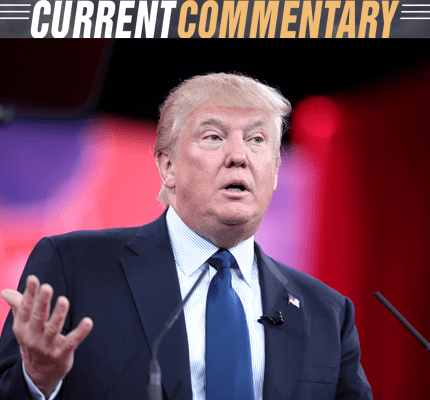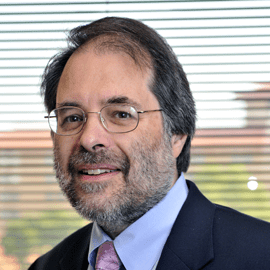
President Trump as a Test of the Rhetorical Construction of Reality Hypothesis
By Rick Cherwitz, Ph.D.
Permit me to be begin this essay with two observations that initially may seem unrelated.
First, putting aside our political leanings, perhaps we can all agree that at the heart of current disagreements about President Donald Trump is the lack of a shared understanding of what constitutes “truth” and “facts.” For example, our differing understandings might explain why some believe the President of the United States and others don’t — and why Americans place faith in very different media outlets.
Second, I suspect there are some who view university faculty as too often sequestered in their ivory tower. These individuals often accuse scholars of writing about obscure and obtuse theoretical issues; their complaint is that academics write about matters that provide little insight into the world of prudential conduct where concrete questions impact our daily lives.
How are these two observations connected?
My argument is that, by rhetorically analyzing a specific political example of divergent notions of truth and facts, we may be able to find a way to resolve the present frustration and seeming impasse. In addition, doing so could prove that the negative perceptions about faculty noted above are overgeneralized, if not inaccurate, documenting how there may be nothing more practical and useful than theory.
For more than 40 years, I have studied and taught courses in political communication and rhetoric. From 1977 to 2010, I engaged in a heated academic debate with scholars such as Robert Scott, Barry Brummett and others about the “social construction of reality” thesis.
Drawing on Peter Berger and Thomas Luckman’s book, The Social Construction of Reality, many communication scholars engaged in research arguing vehemently that rhetoric — what one writes or speaks — has the power literally to create reality, especially when others agree with what is said. As an epistemological realist, I took issue with this claim.
In several books — including Communication and Knowledge: An Investigation in Rhetorical Epistemology — and dozens of journal articles, I suggested that reality stands independent of our discourse, i.e., as separate from what we say or write. Hence, reality eventually intrudes and as a result cannot be willed into existence or wished away just because we say so. Stated bluntly, I contended that reality per se cannot literally be socially constructed; only perceptions of reality can be created rhetorically.
So why is this theoretical debate more than a tedious argument about how many angels can dance on the head of a pin?
On December 19, 2018, President Donald Trump offered us the ultimate empirical test of the social construction of reality hypothesis — and one with huge consequences. Reminiscent of Vermont Senator George Aiken’s proposal in 1966 that the United States should exit the war in Vietnam simply by declaring that the United States had won, Trump decided to withdraw from Syria, claiming that we have defeated ISIS.
Not surprisingly, military experts in the Pentagon have since questioned the veracity of Trump’s claim, also noting the dangerous implications of withdrawing from Syria. Along with many Republicans and Democrats, they have argued that the United States has not defeated ISIS merely because the President of the United States said so.
What they are suggesting is that facts are objectively instantiated — and not simply a rhetorical construct. Put simply, their prediction is that ISIS again will rear its ugly head, perhaps even emerging stronger and more threatening to our national security.
From a political standpoint, I agree. Moreover, as a rhetorician, I believe this argument offers persuasive evidence that reality eventually does impinge and that rhetoric, therefore, no matter how eloquent or how many it convinces, cannot socially construct reality.
What can we learn from this analysis?
First, the frustration Americans now experience about our nation’s divergent and apparently irreconcilable perspectives on what constitutes facts and truth may dissipate. For example, as reality continues to intrude, and as the force of that intrusion is felt directly by more people, we may begin to reach consensus about the Trump presidency and how to move forward in a less polarized and more civilized manner.
Second, those who critique faculty for the alleged irrelevance of their scholarship may start to realize the importance and usefulness of theoretical research in communication and its potential to help us address practical problems.
And, in the academic world where I live, this may have the positive effect of encouraging communication scholars to become more engaged by educating the public about how what we do truly matters.
REFERENCES
For a more thorough discussion of my realist rhetorical epistemology, please see:
BOOKS:
Cherwitz, Richard, Ed. Rhetoric and Philosophy. (Hillsdale, N.J.: Lawrence Erlbaum Associates, Inc., 1990).
Cherwitz, Richard and Hikins, James. Communication and Knowledge: An Investigation in Rhetorical Epistemology. (Columbia, South Carolina: University of South Carolina Press, 1986).
JOURNAL ARTICLES:
Hikins, James and Cherwitz, Richard. “On the Ontological and Epistemological Dimensions of Expertise: Why “Reality” and ‘Truth” Matter and How We Might Find Them.” Social Epistemology, 25 (2011), 245–262.
Cherwitz, Richard and Hikins, James. “Climbing the Academic Ladder: A Critique of Provincialism in Contemporary Rhetoric.” Quarterly Journal of Speech, 86 (2000), 375–85.
Cherwitz, Richard and Darwin, Thomas. “Why the ‘Epistemic’ in Epistemic Rhetoric? The Paradox of Rhetoric as Performance.” Text and Performance Quarterly, 15 (1995), 189–205.
Cherwitz, Richard and Darwin, Thomas. “Toward a Relational Theory of Meaning.” Philosophy and Rhetoric, 28 (1995), 17–29.
Cherwitz, Richard and Hikins, James. “The Role of Argument in the Postmodern World and Beyond.” Argumentation, 9 (1995), 119–22.
Cherwitz, Richard and Darwin, Thomas. “On the Continuing Utility of Argument in a Postmodern World.” Argumentation, 9 (1995), 181–202.
Cherwitz, Richard and Darwin, Thomas. “Beyond Reductionism in Rhetorical Theories of Meaning.” Philosophy and Rhetoric, 27 (1994), 313–29.
Cherwitz, Richard and Hikins, James. “Irreducible Dualisms and the Residue of Commonsense: On the Inevitability of Cartesian Anxiety.” Philosophy and Rhetoric, 23 (1990), 229–241.
Cherwitz, Richard and Hikins, James. “Burying the Undertaker: A Eulogy for the Eulogists of Rhetorical Epistemology.” Quarterly Journal of Speech, 76 (1990), 73–77.
Cherwitz, Richard. “Viewing Rhetoric as Epistemic: A Conversation.” Pre/Text, 5 (1985), 197 236.
Cherwitz, Richard and Hikins, James. “Rhetorical Perspectivism.” Quarterly Journal of Speech, 69 (1983), 249 266.
Croasmun, Earl and Cherwitz, Richard. “Beyond Rhetorical Relativism.” Quarterly Journal of Speech, 68 (1982), 1 16.
Cherwitz, Richard and Hikins, James. “Toward a Rhetorical Epistemology.” Southern Speech Communication Journal, 47 (1982), 135 162.
Cherwitz, Richard and Hikins, James. “John Stuart Mill’s On Liberty: Implications for the Epistemology of the New Rhetoric.” Quarterly Journal of Speech, 65 (1979), 12 24.
Cherwitz, Richard. “Rhetoric as a ‘Way of Knowing’: An Attenuation of the Epistemological Claims of the ‘New Rhetoric’.” Southern Speech Communication Journal, 42 (1977), 207 219.
Brummett, Barry. "Some Implications of 'Process' or Intersubjectivity: Postmodern Rhetoric." Philosophy and Rhetoric, 9 (Winter, 1976), 21-51.
Brummett, Barry. "On to Rhetorical Relativism." Quarterly Journal of Speech, 68 (1982), 111-24.
Scott, Robert. "On Viewing Rhetoric as Epistemic." Central States Speech Journal, 18 (February 1967), 9-17.
Scott, Robert. "On Viewing Rhetoric as Epistemic: Ten Years Later." Central States Speech Journal, 27 (Winter, 1976), 258-266.


